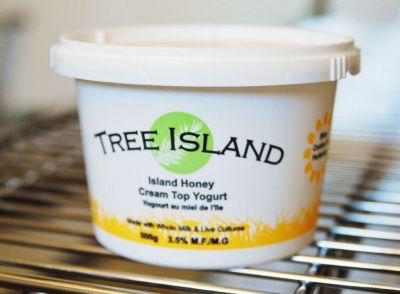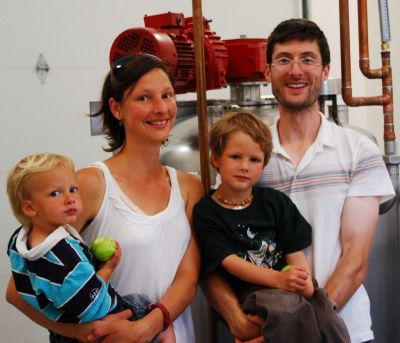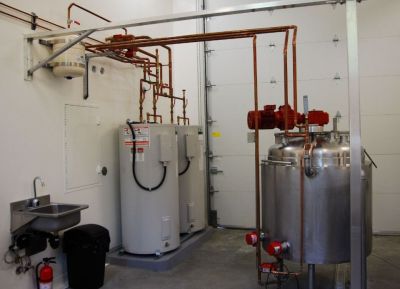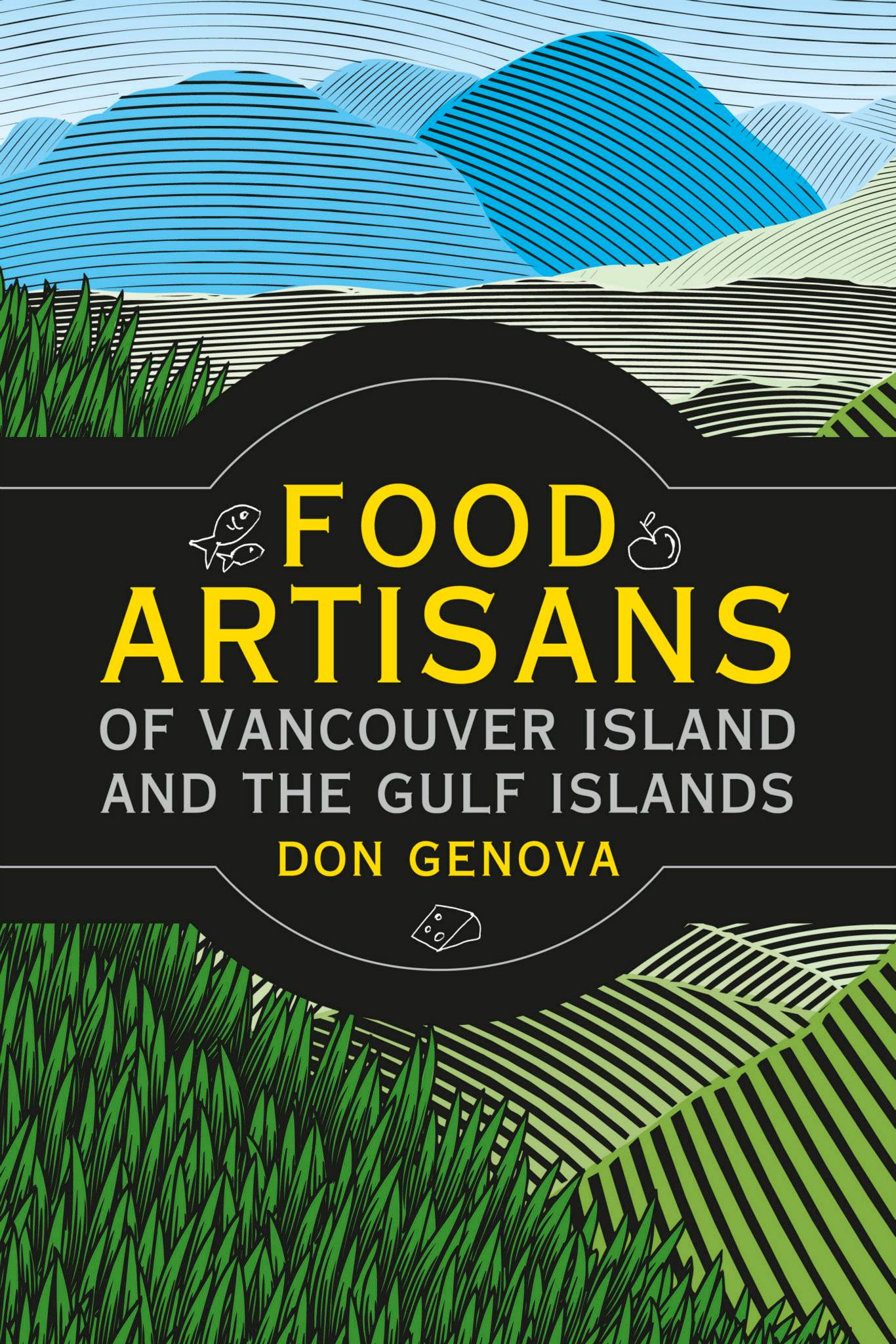Bringing a new food product to market is always a road filled with detours, delays and sometimes the inevitable pothole. But when the dreams of another artisan producer on Vancouver Island come to fruition, I like to be there for the first taste, and such was the case on this week’s edition of Food Matters.
I have been waiting to tell this story for a long time…it was way back in August when I visited with Scott DiGuistini and Merissa Myles in their brand new milk processing plant in Royston, just south of Courtenay. They were all but ready to start making a product that has only two ingredients, milk and a bacterial culture, which combined in the right proportions at the right temperature in the perfect conditions, makes yogurt.
They decided to make yogurt as part of a whole lifestyle choice they made when they started their family. They have two young boys and they found they didn’t want to stay in busy Vancouver, where they had been based. Then there was the yogurt epiphany experienced on a trip to France, tasting yogurt that they had never tasted before…because it was plain and simple and not industrialized like most of our yogurt is in Canada. Scott says that got their business minds going:
“And we saw that despite there being a large variety of yogurts on the shelves, they are really made by just two or three companies, and they certainly aren’t made from around here with local milk, so we thought that kind of gave us an immediate in.”
The ‘in’ is that their company, Tree Island Gourmet Yogurt, uses milk from grass-fed cows from a single farm in the Comox Valley and they are using the whole milk, nothing taken out and nothing added in other than the bacterial cultures necessary for proper fermentation…and they are going to play with some seasonal flavours as well.
It wasn’t easy to go from idea to a tub of yogurt. Once they got the original idea of making yogurt, they thought, hey, let’s make some food and sell it locally. Scott says they got a wake-up call early in:
“It turns out that idea wasn’t very realistic. So we wrote up this huge business plan and we took it to the accountants and they told us we were crazy, and we took it to the Milk Marketing Board and they told us we were crazy…so we adjusted our plan substantially.”
Because it’s a milk product you can’t just make it in a regular industrial or commercial kitchen, there are lots of special rules and regulations for the handling of milk products. Now, it helps that Scott is a microbiologist, and Merissa has a background in marketing. They still had to jump through a lot of hoops, but they have built a state of the art processing plant in Royston and they are finally ready to be able to sell their yogurt to the public with all the proper licensing and certifications.
Part of the great flavour of this yogurt is the cream on top. Because they don’t skim off or separate the milk at all, when the yogurt is made a thin layer of cream rises to the top. You can scoop that off and use it however you would like for a lower-fat yogurt, or just stir it in. Then there are the additions, including local honey, as Merissa explains:
“The thing about what we’re doing is that we are using high-quality ingredients, no preservatives, no additives, and in our honey yogurt we are using Vancouver Island honey; when we start making our vanilla yogurt it will be with real vanilla beans so that you can see the little black flecks of the beans in the yogurt.”
And Scott points out that you don’t always get what you think you’re getting when purchasing an industrial style yogurt:
“There aren’t really that many honey yogurts on the market, but if you do find one and look at the ingredients, you’ll see that there isn’t actually any honey in the product. They tend to use burnt sugar to recreate a honey flavour, and using real honey presents some challenges in the production process.”
Competition is steep in the yogurt section so they are starting small…primarily serving the local market in the Comox Valley and they will retail at a select number of speciality grocery stores in Victoria, so you’ll be able to find Tree Island Yogurt at Lifestyles Markets and at Peppers and they will be doing some farmers’ markets in Victoria and the Comox Valley. Scott and Merissa realize that while you may find an industrial-style cheese counter as well as an artisan cheese shelf in most markets, in yogurt there is no such distinction. So they want to stay with the smaller grocers they know will be proud to have another local product. The price will be a little higher than your common industrial yogurts but they figure once you know how pure a product it is and you taste it you’ll be hooked.
If you want to listen to Jo-Ann Roberts and me tasting the yogurt, the audio should be posted on this All Points West webpage.






Pingback: Food Matters - Legato Gelato